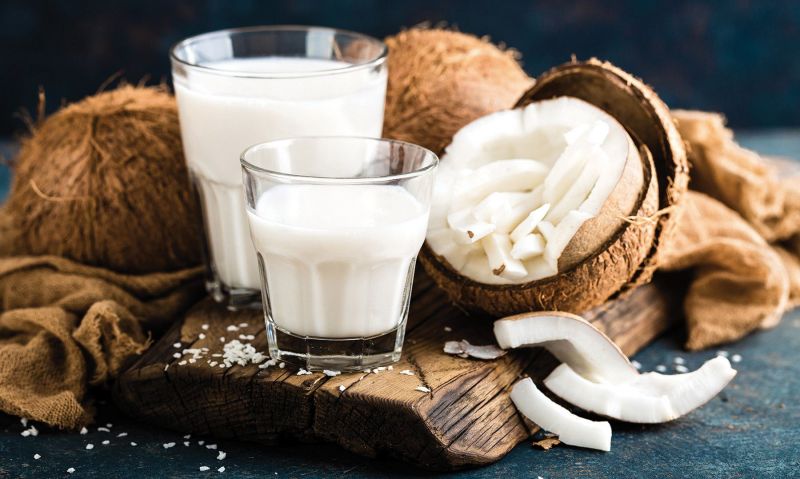
Your guide to plant-based milks
The popularity of non-dairy milk has surged due to health concerns over dairy, an increase in lactose intolerance as people age and other factors. Plant-based milks are healthier options and better for the environment.
Here’s an overview of different kinds of plant-based milks, their benefits and more:
Nut milks. Popular varieties include almond, cashew, macadamia, pistachio and hazelnut. These milks are made by blending various nuts with water and straining out the pulp. Mostly known for being low-calorie with a mild, nutty flavor and creamy texture, these are a versatile option for use in coffee, cereal, smoothies and baking. The nutritional content can vary significantly depending on added sugars, fortification and processing methods. Opt for unsweetened varieties, and check the ingredient list for additives and preservatives. People with nut allergies should consider alternatives.
Seed milks. Flaxseed, hemp and other seed milks are often rich in essential nutrients such as protein and fiber, and vitamins and minerals like vitamin E, calcium, magnesium and zinc. They typically have lower calorie content than dairy milk. Seed milks, particularly flaxseed, may promote digestive health due to high fiber content, which can support regular bowel movements and overall gut health; they also contain heart-healthy fats like omega-3 fatty acids, which may help lower LDL cholesterol levels and reduce the risk of heart disease. Compared to dairy and nut milks, seed milks require less water and produce fewer greenhouse gas emissions.
Soy milk. Derived from soybeans, this milk has been a staple in some cultures for centuries. Known for its high protein content, soy milk is also a good source of calcium and vitamin D. With its neutral taste, it works well in sweet and savory dishes. Some research suggests, however, that soy milk could be an endocrine disruptor by mimicking estrogen in the body, possibly leading to hormone overload.
Coconut milk. This milk is prized for its rich, tropical flavor and luxurious texture. It contains medium-chain triglycerides, which help improve heart health and weight management. Coconut milk is commonly used in curries, desserts, and tropical and coffee beverages.
Grain milks. Examples include oat and rice milks, which are cholesterol-free. These milks are made by blending oats or milled rice with water and straining out the solids. Oat milk boasts a naturally sweet flavor and a smooth consistency. Known for its ability to froth well, oat milk is a favorite in barista-style coffee drinks. Rice milk, which is not as nutrient-dense as others, offers a subtle flavor for those seeking a milder alternative to dairy.
Army veteran Jennifer Campbell is a certified personal trainer with a master’s degree in nutrition education. She is past commander of the California Legion’s 24th District and Hollywood Post 43.
